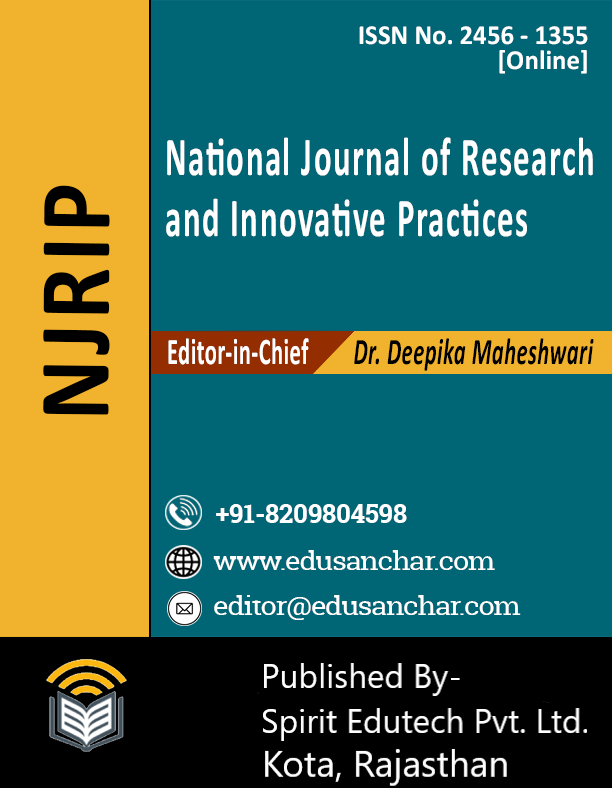
Acknowledgement and Contribution towards Inclusive Education among School Teachers and Authorities
Author Name :- MS. SHABNAM BANO,,
Journal type:- NJRIP-National Journal of Research and Innovative Practices
Research Field Area :- Department of Education ; Volume 10, Issue 2, No. of Pages: 10
Your Research Paper Id :- 202501021709
Download Published File :- Click here
Abstraction :-
Keywords :-
Inclusive Education, School Authorities, School Teachers, Teacher attitude toward Inclusive Education
References :-
• Avramidis, E., & Kalyva, E. (2007). The influence of teaching experience and professional development on Greek teachers’ attitudes towards inclusion. Journal of Special Education, 41(3), 160-170.
• Forlin, C. (2010). Teacher preparation for inclusive education: A literature review. International Journal of Inclusive Education, 14(4), 185-203.
• Friend, M. (2008). Co-teaching: A guide to effective practice. Pearson.
• Sharma, U., Loreman, T., & Forlin, C. (2014). Impact of training on pre-service teachers’ attitudes and efficacy towards inclusion. International Journal of Disability, Development, and Education, 61(4), 331-343.
• Tomlinson, C. A. (2001). How to Differentiate Instruction in Mixed-Ability Classrooms. ASCD.
• Ainscow, M. (2005). Inclusion and Diversity in Education. Routledge.
• Avramidis, E., & Norwich, B. (2002). "Teachers' attitudes towards integration/inclusion: A review of the literature." European Journal of Special Needs Education, 17(2), 129-147.
• Bennett, S. (2009). Inclusive Education: A Teacher’s Guide to the Evidence. Oxford University Press.
• Elkins, J., & van Kraayenoord, C. (2003). "Inclusive education: The impact of policy on practice." International Journal of Disability, Development and Education, 50(3), 223-238.
• Forlin, C. (2001). "The Impact of Inclusion on Teachers' Attitudes and Beliefs." International Journal of Special Education, 16(2), 55-64.
• Friend, M., & Cook, L. (2007). Interactions: Collaboration Skills for School Professionals (6th ed.). Pearson.
• Haug, P. (2017). "Challenges in implementing inclusive education." European Journal of Special Needs Education, 32(3), 437-448.
• Loreman, T., Sharma, U., & Forlin, C. (2005). "Teacher perceptions of inclusive education in developing countries." International Journal of Special Education, 20(1), 39-47.
• Maktav, M., & Tuncer, M. (2019). "Teacher education for inclusive education: A critical review." International Journal of Inclusive Education, 23(7), 732-745.
• McLeskey, J., & Waldron, N. (2012). "Inclusive education: The impact on students with disabilities." Journal of Special Education, 46(3), 151-160.
• UNESCO. (2009). Policy Guidelines on Inclusion in Education. UNESCO


